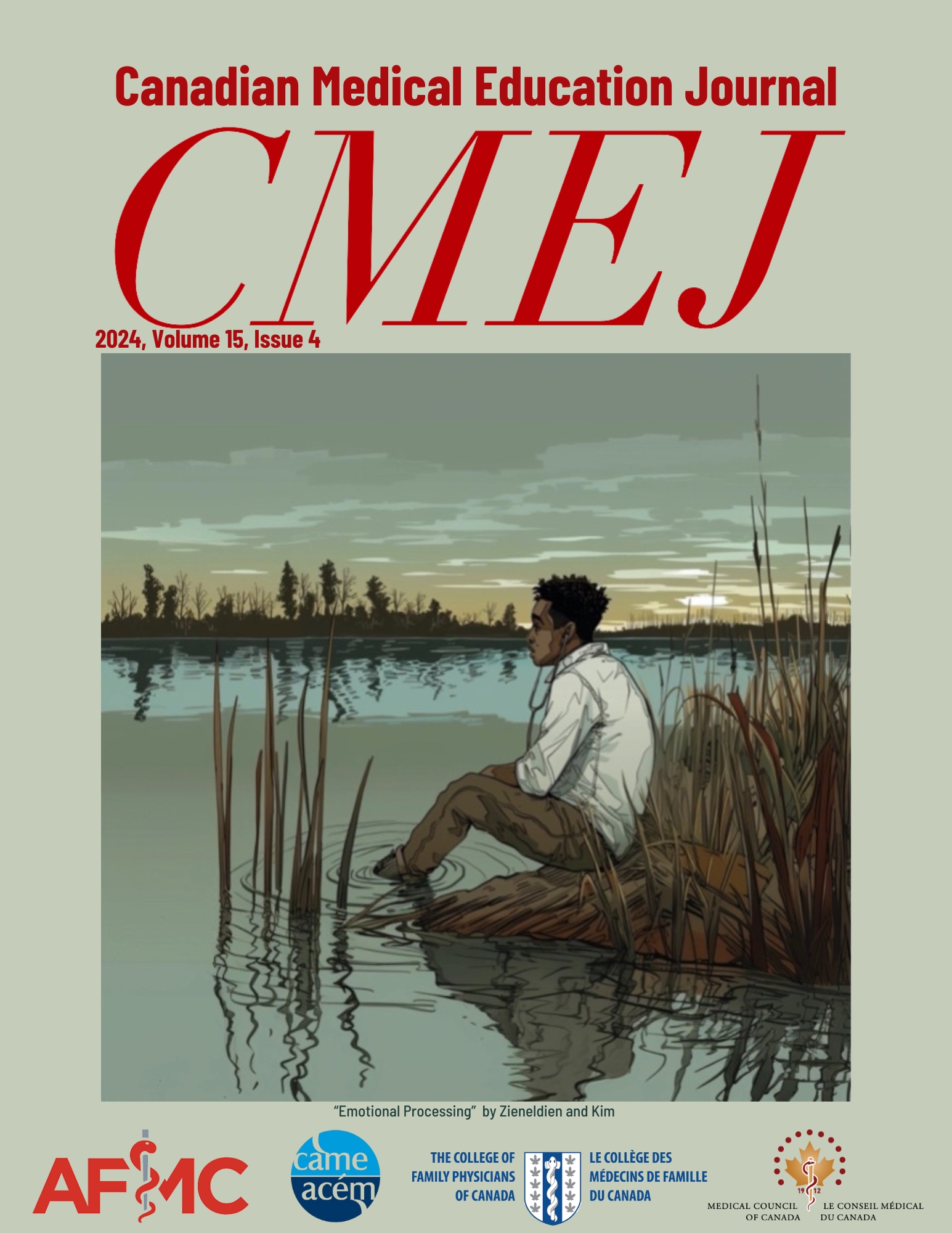Practice makes perfect: the development of a medical student-led crowdsourced question bank for self-study in undergraduate medical education
DOI:
https://doi.org/10.36834/cmej.78869Abstract
Implication Statement
The development of multiple-choice questions (MCQs) for undergraduate medical education study purposes is resource intensive. Commercially available question banks are typically expensive, only available in English, and may not be aligned with medical school learning objectives. Here, we introduce The Ottawa Question Bank: a student-led, bilingual study resource curated to a Canadian undergraduate medicine curriculum (www.theottawaquestionbank.ca). In total, 205 medical students wrote and edited 4438 original MCQs linked to objectives from the University of Ottawa undergraduate medical education curriculum. The project has received positive feedback from both developers and users. Our experience suggests that involving medical students in MCQ development is feasible and can result in the rapid creation of a low-cost, high-quality study resource curated to a program’s learning objectives. The platform outlined here can be used as a model for other medical schools and professional degree programs to develop their own question banks, including pharmacy, dentistry, nursing, and physiotherapy. Interested programs are encouraged to contact our team for collaborative opportunities.
References
Epstein RM. Assessment in medical education. N Engl J Med. 2007;356(4):387-96. https://doi.org/10.1056/NEJMra054784.
Wynter L, Burgess A, Kalman E, Heron JE, Bleasel J. Medical students: what educational resources are they using? BMC Med Educ. 2019;19(1):36. https://doi.org/10.1186/s12909-019-1462-9
Ripp K, Braun L. Race/ethnicity in medical education: an analysis of a question bank for step 1 of the United States medical licensing examination. Teach Learn Med. 2017;29(2):115-22. https://doi.org/10.1080/10401334.2016.1268056
London DA, Kwon R, Atluru A, Maurer K, Ben-Ari R, Schaff PB. More on wow USMLE Step 1 scores are challenging academic medicine. Acad Med. 2016;91(5):609-10. https://doi.org/10.1097/acm.0000000000001159
Foos PW, Mora JJ, Tkacz S. Student study techniques and the generation effect. J Educ Psychol. 1994;86(4):567-76. https://doi.org/10.1037/0022-0663.86.4.567
Yulianto A, Supriatnaningsih R. A quantitative evaluation of close-language pair translation (French to English). AJELP. 2021;9(2):109-27. https://doi.org/10.37134/ajelp.vol9.2.9.2021
Downloads
Published
Issue
Section
License
Copyright (c) 2023 Mario Corrado, Carlyn McNeely, Isabelle Lefebvre, Rikesh Raichura, Bryce JM Bogie, Timothy J Wood

This work is licensed under a Creative Commons Attribution-NonCommercial-NoDerivatives 4.0 International License.
Submission of an original manuscript to the Canadian Medical Education Journal will be taken to mean that it represents original work not previously published, that it is not being considered elsewhere for publication. If accepted for publication, it will be published online and it will not be published elsewhere in the same form, for commercial purposes, in any language, without the consent of the publisher.
Authors who publish in the Canadian Medical Education Journal agree to release their articles under the Creative Commons Attribution-Noncommercial-No Derivative Works 4.0 Canada Licence. This licence allows anyone to copy and distribute the article for non-commercial purposes provided that appropriate attribution is given. For details of the rights an author grants users of their work, please see the licence summary and the full licence.










